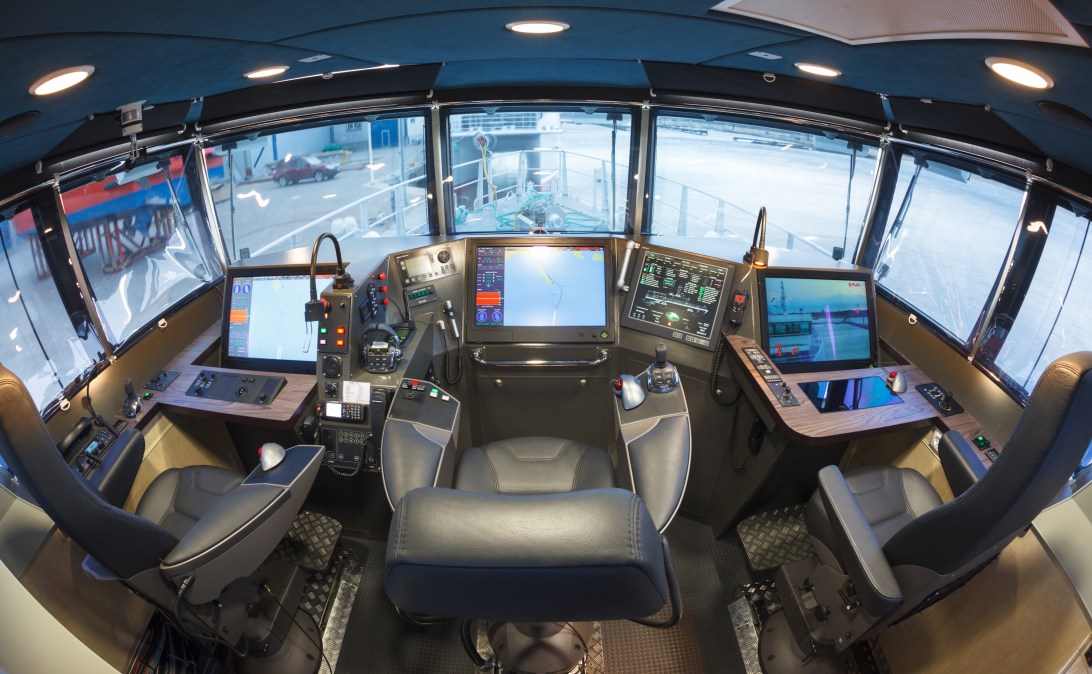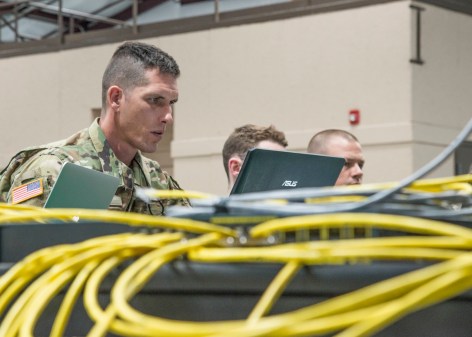Northrop Grumman’s sale of IT shop reflects interest in market’s growth, analysts say

As private equity firm Veritas Capital buys Northrop Grumman’s IT shop for a reported $3.4 billion, the acquisition is effectively creating one of the largest defense IT providers while highlighting the growing consolidation in the market.
The sale is in line with recent trends for major defense firms, which have been selling off IT shops, and for buyers, who are eager to tap into the market for big-ticket federal contracts. This latest sale, completed Feb. 1, was not a surprise to analysts, who said it showed the continued growth of the federal IT business. Veritas plans to combine the acquired business with its Peraton unit, which is a major IT service provider to the Department of Defense.
“The interesting thing about it [is that Northrop] hadn’t done it sooner,” Andrew Hunter, director of the Defense-Industrial Initiatives at the Center for International and Strategic Studies, said in an interview.
The military has been placing more emphasis — and dollars — on IT in recent years, giving contractors with the technology talent ample room to pursue business lines. Major programs like the Joint Enterprise Defense Infrastructure (JEDI) cloud computing project have multibillion-dollar ceilings, and projects like the Air Force’s network-of-networks Advanced Battle Management System (ABMS) have brought tech that used to be more back-office-focused — like data analytics — closer to the battlefield.
“IT markets are growing markets, full stop, without question,” Hunter said. There might be some areas where traditional contractors couldn’t fully take advantage of that situation, however, because they’ve been “seeing growth in revenue, but not growth in margins,” he said.
That growth in revenue, meanwhile, has been enticing for IT-focused capital groups and technology firms.
Veritas has been a major player in the recent acceleration of acquisition activity in the IT market. It bought Peraton from L3Harris in 2017 for $690 million before going on to pay $7.1 billion for Perspecta, which it plans to merge with the Northrop buy. Separate arms of Veritas have also made recent major defense IT acquisitions. The series of purchases could create the DOD’s largest IT service provider by contract revenue soon, according to analysis from Bloomberg Government.
As the multibillion-dollar deals are closing, market forces are working on companies at the newer end of the life-cycle, too. Startups and early-stage venture-backed companies are entering defense IT in ways that are disrupting how the big, traditional players build new business lines.
In the past, consolidation was a money-moving “shell game” with in the market, said Nate Ashton, managing director for public policy at Dcode, a government-technology incubator. The game basically served to streamline revenue and create a more efficient “back end” for managing contracts, he said.
In the future, acquisitions could start to focus on buying out the disruptive technology being brought to market, Ashton said.
“What I think will come down the line over the next few years … is more smaller acquisitions of true differentiating technologies,” Ashton said.
Now, most of the value-add for companies in inking multibillion-dollar deals comes with adding IT personnel, prime contracts and government connections. With more emerging technology on the horizon, innovations themselves could become a part of the equation, Ashton said.
Innovation from within is also part of the picture for the big contractors, too, of course. Northrop Grumman is not completely exiting the IT business, analysts noted, because its portfolio of defense work will remain tech-heavy as warfighting systems become more intertwined with software and IT.





